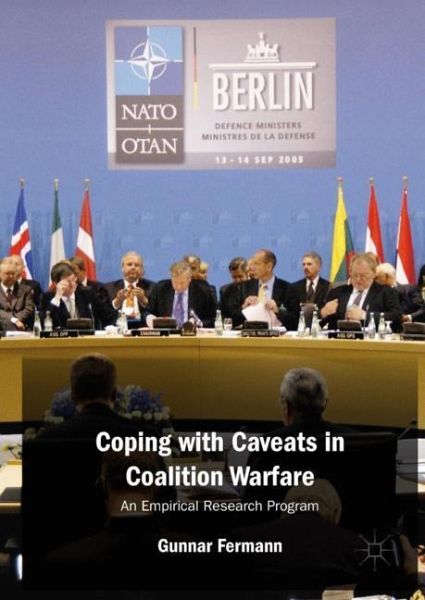
Coping with Caveats in Coalition Warfare
An Empirical Research Program
Versandkostenfrei!
Versandfertig in 6-10 Tagen
61,99 €
inkl. MwSt.
Weitere Ausgaben:

PAYBACK Punkte
31 °P sammeln!
This book develops a framework for analysis, and a set of research strategies, to better understand the conditions and mechanisms involved in the considerable use of caveats by states contributing militarily to coalition operations. In the professional language of military servicemen, security analysts and decision-makers, "caveats" refers to the reservations on the use of force states put on their military contingents as a precondition to participate in particular multinational enforcement operations. Such understood caveats are an instrument of statecraft and foreign policy. However, caveats...
This book develops a framework for analysis, and a set of research strategies, to better understand the conditions and mechanisms involved in the considerable use of caveats by states contributing militarily to coalition operations. In the professional language of military servicemen, security analysts and decision-makers, "caveats" refers to the reservations on the use of force states put on their military contingents as a precondition to participate in particular multinational enforcement operations. Such understood caveats are an instrument of statecraft and foreign policy. However, caveats also are a potential threat to the integrity and military effectiveness of the coalition force in question, and, further down the road, an erosion on the fabric of security alliances. This volume is ideal for audiences interested in military and defence studies, security studies and coalition warfare.














